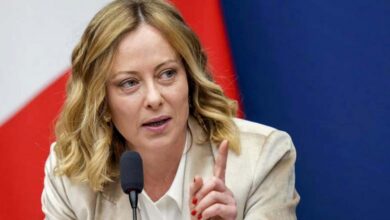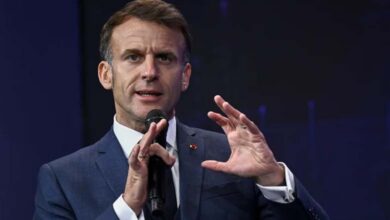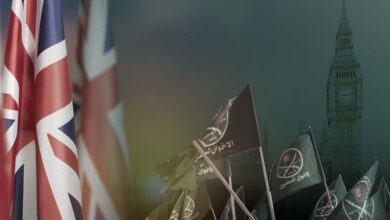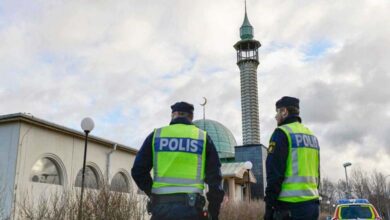The Muslim Brotherhood in France Practices Judicial Terrorism
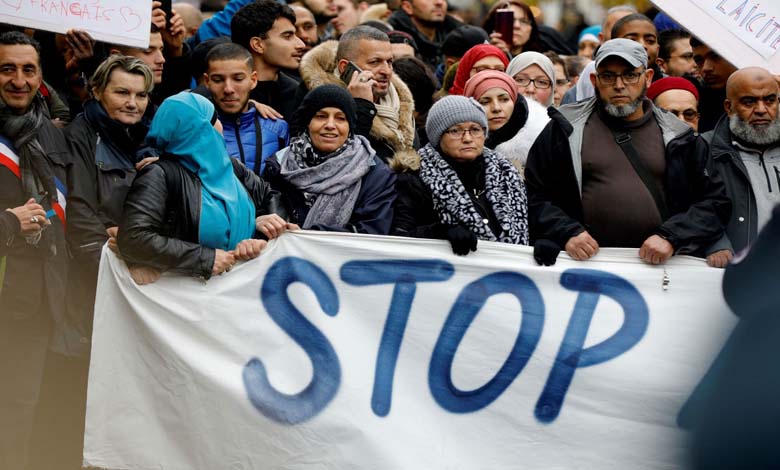
A growing debate has emerged over the influence of the Muslim Brotherhood in France, reignited by a case involving French MP Marion Maréchal.
Two French experts said that Maréchal’s case has reopened the discussion on the limits of free speech in the face of what they describe as the Brotherhood’s “judicial terrorism” against its critics. They argue that the Brotherhood uses the French legal system as a weapon to intimidate political opponents.
-
The Muslim Brotherhood in France: The Book “Conspirators of Evil” Shakes the Political Scene
-
Muslim Brotherhood Infiltration Shakes France’s Left: Bleeding Inside Mélenchon’s Party
French MP and Member of the European Parliament Marion Maréchal, leader of the “Identity and Freedom” movement, reaffirmed on Thursday her determination to continue opposing the influence of the Muslim Brotherhood after an affiliated organization filed a defamation lawsuit against her.
Franck Frégosi, a French researcher at the National Center for Scientific Research (CNRS), explained that the Brotherhood is not a religious or charitable organization, but rather a long-term ideological and political project aiming to influence Western societies. He noted that their strategy does not necessarily rely on direct violence but on gradual infiltration within educational institutions, associations, mosques, and the halal market. According to Frégosi, the Brotherhood seeks to intimidate any French official or political figure who criticizes them.
-
The Muslim Brotherhood and Education in France: the Ibn Khaldoun Crisis Unveils Hidden Funding Networks
-
France’s Muslim Brotherhood… warnings over infiltration and calls to address its root causes
Frégosi added that the Brotherhood applies what it calls “penetration” — a strategy of infiltration into civil society and state institutions to promote values and reforms aligned with its vision. This process is often concealed under the guise of social or educational initiatives. He emphasized that its influence is most visible in the long-term cultural and moral spheres rather than in direct confrontation.
This approach, he said, reflects the same warnings voiced by Marion Maréchal. He also noted that the real challenge is not always external organizations or grand conspiracies, but rather the social isolation and sense of discrimination experienced by some Muslims in France — factors that can lead them to seek ideological or cultural alternatives.
-
The Brotherhood’s Claw Resurfaces in France… What Is Baraka City About?
-
Muslim Brotherhood Infiltration in France: A Threat to Society and How to Respond
For his part, French constitutional law expert Denis Branger, a professor of public law at the University of Paris-Panthéon, said that the issue is not merely about filing a lawsuit against a parliamentarian. He recalled that, under the French Constitution, members of parliament enjoy “parliamentary immunity,” which protects them from prosecution over opinions or votes expressed in the course of their duties.
Article 26 of the French Constitution states that an MP “shall not be prosecuted, investigated, arrested, detained, or tried in respect of opinions expressed or votes cast in the performance of their duties.” Branger warned that even the act of initiating a lawsuit against an elected official, regardless of its outcome, could pose a serious threat to freedom of expression and parliamentary oversight, thereby narrowing the space for political debate in France.
-
France Unmasks the Muslim Brotherhood: A Late but Decisive Battle
-
A Step in the Fight: France Cuts Off Funding to Brotherhood-Linked Institute
In a video posted on her X account (formerly Twitter), Marion Maréchal denounced what she called the Brotherhood’s “judicial harassment,” according to the French newspaper Le Journal du Dimanche.
The public prosecutor of Valence later confirmed that the prosecution was not seeking any penalty against the MP, considering her statements part of a “democratic debate.”
In the video, Maréchal declared: “Since I made the fight against your movement and your ideology one of my political priorities, you have unleashed a real form of judicial terrorism against me.”
-
Is France Moving Towards a Decisive Confrontation with the Muslim Brotherhood After the Intelligence Report?
-
Muslims of France: A Brotherhood Front Undermining the Fifth Republic
The case dates back to an interview on CNews on October 2, 2023, in which Maréchal accused the mayor of Valence of attempting to sell land to an association linked to the Brotherhood — referring to the Islamic school run by the “Values and Success” association. The group then filed a defamation lawsuit against her.
Although Maréchal did not attend the hearings, she spoke from the European Parliament in Brussels, reiterating her commitment to “fight the Brotherhood movement.”
“In Brussels, I expose your other faces, including the organization FEMYSO, which I consider a hidden front for influence under the guise of a youth NGO,” she stated, accusing the Brotherhood of “silent infiltration” into European institutions, exploiting what she described as “the naivety or leniency of some officials.”
-
The Muslim Brotherhood Threat in France: A Digital and Geographical Mapping
-
The Muslim Brotherhood’s Threat to Education in France: The Frontlines Begin at Averroès
She cited as evidence the dissolution last June by the French Ministry of the Interior of the European Institute of Human Sciences (IESH) — the oldest imam training center in France — over its alleged links with the Muslim Brotherhood.
“You can smear me, attack me, or threaten me,” she concluded, “but you will never silence my voice.”
The French prosecutor’s office ultimately concluded that her remarks fell within the bounds of political free expression and therefore called for the charges to be dropped.
-
New Security Warning in France: The Muslim Brotherhood, “the Greatest Internal Threat”
-
Reaching by Any Means: How the Muslim Brotherhood Penetrated France



